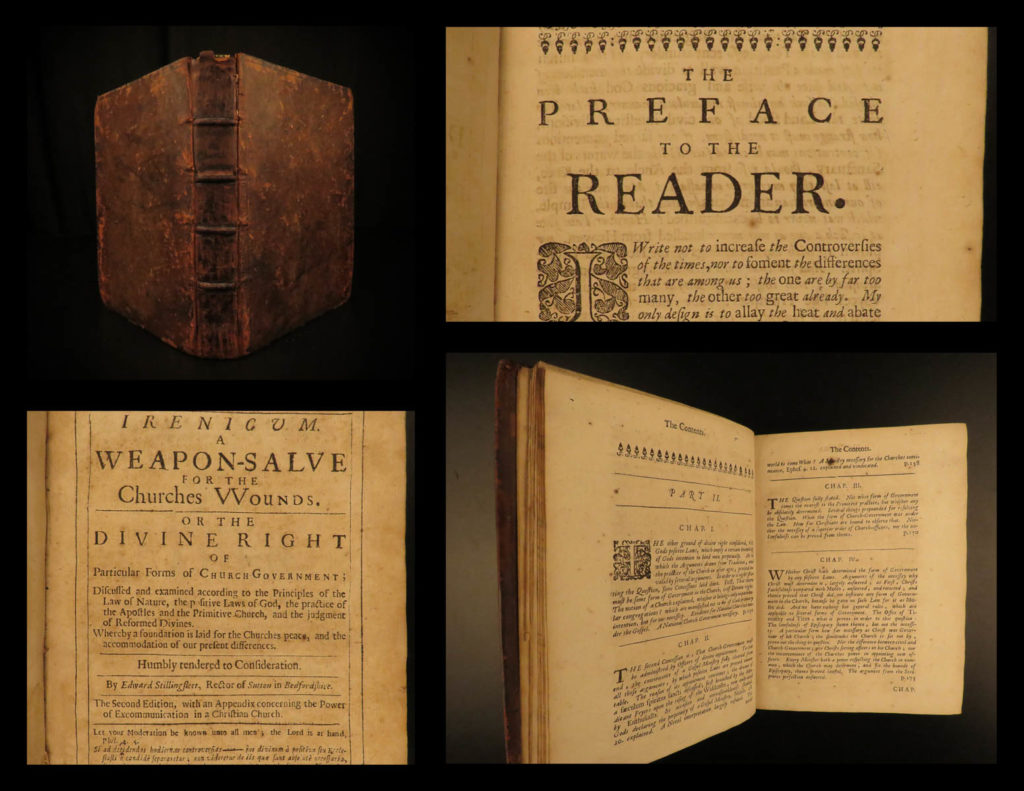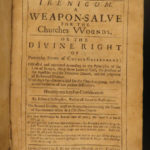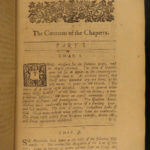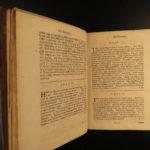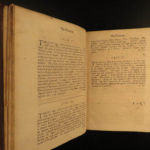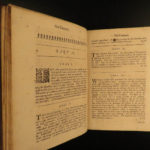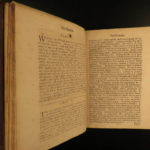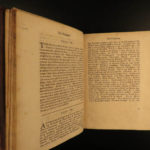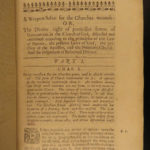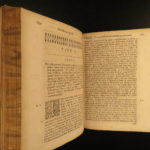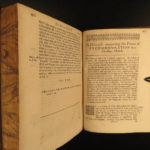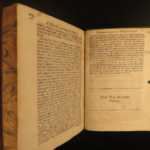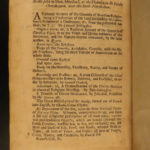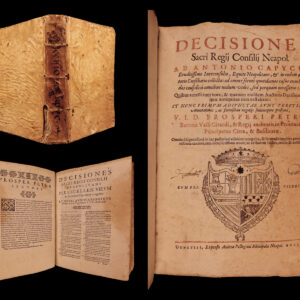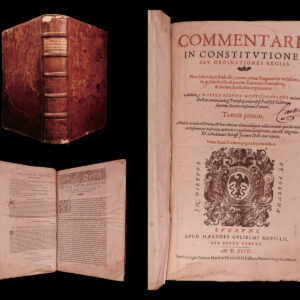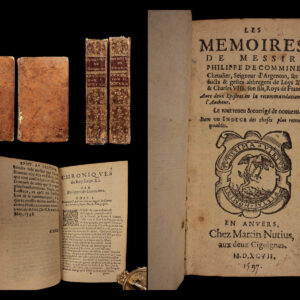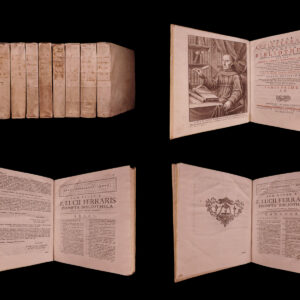1662 Stillingfleet Irenicum Anglican Church Government vs Presbyterian ENGLISH
Edward Stillingfleet was a 17th-century British theologian known for his defensive views on Anglicanism. His first work, which (negatively) set the tone for his literary career, was ‘The Irenicum’, a work which advocated for compromise between the Presbyterian and Anglican Orthodox churches. While the root of the work is founded in theological church models and structures, Stillingfleet covers a variety of philosophical ideas including the state of natural law.
According to Morison and Richardson,
“‘The Irenicum’ was set forth the assuage the spirit of sectarian bitterness; it was an attempt to show that there was no plan of Church Order laid down in the New Testament; and it bears just as strongly against notions of divine institution of Presbyterianism.”
‘Irenicum’ was published before the church was re-established and contributed to debates about ecclesiastical restoration by showing the legitimacy of obeying decisions on rites and worship left undetermined in the Bible. (Rose, p.141ff). Stillingfleet made controversial claims about the legal authority the church had over the law – however, he did push the concept of strict obedience to the law as it was divinely inspired. Moreover, the church was responsible for advising on the content of the laws, but the actual governing power and law enforcement remained with the magistrate. (Rose, 143).
1662 Stillingfleet Irenicum Anglican Church Government vs Presbyterian ENGLISH
Edward Stillingfleet was a 17th-century British theologian known for his defensive views on Anglicanism. His first work, which (negatively) set the tone for his literary career, was ‘The Irenicum’, a work which advocated for compromise between the Presbyterian and Anglican Orthodox churches. While the root of the work is founded in theological church models and structures, Stillingfleet covers a variety of philosophical ideas including the state of natural law.
According to Morison and Richardson,
“‘The Irenicum’ was set forth the assuage the spirit of sectarian bitterness; it was an attempt to show that there was no plan of Church Order laid down in the New Testament; and it bears just as strongly against notions of divine institution of Presbyterianism.”
‘Irenicum’ was published before the church was re-established and contributed to debates about ecclesiastical restoration by showing the legitimacy of obeying decisions on rites and worship left undetermined in the Bible. (Rose, p.141ff). Stillingfleet made controversial claims about the legal authority the church had over the law – however, he did push the concept of strict obedience to the law as it was divinely inspired. Moreover, the church was responsible for advising on the content of the laws, but the actual governing power and law enforcement remained with the magistrate. (Rose, 143).
Item number: #11914
Price: $599
STILLINGFLEET, Edward
Irenicum. A weapon-salve for the churches wounds, or The divine right of particular forms of church-government
London : Printed by R.I. for Henry Mortlock, at the Phoenix, and John Simmes, at the Cross-keyes in St. Pauls Church-yard, neer the little North door, 1662.
Details:
- Collation: Complete with all pages
- [28], 447, [1]
- References: Rose, Godly Kingship in Restoration England; Morison & Richardson, The Church Review 209;
- Language: English
- Binding: Leather; tight & secure
- Size: ~8in X 6in (20cm x 15cm)
Our Guarantee:
Very Fast. Very Safe. Free Shipping Worldwide.
Customer satisfaction is our priority! Notify us with 7 days of receiving, and we will offer a full refund without reservation!
11914
Categories
Law & Government
Religion
Authors
STILLINGFLEET, Edward
Printing Date
17th Century
Language
English
Binding
Leather
Book Condition
Excellent
Collation
Complete

